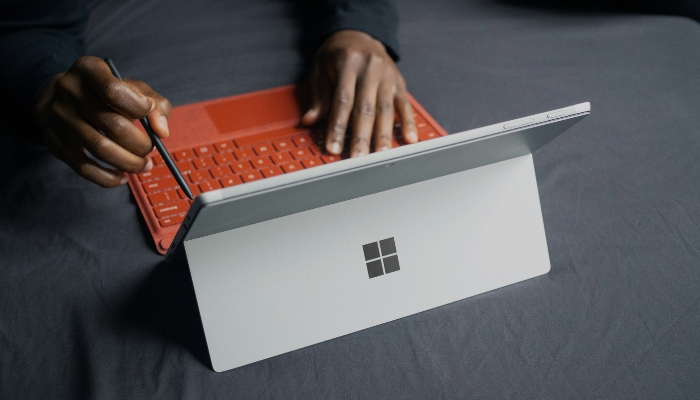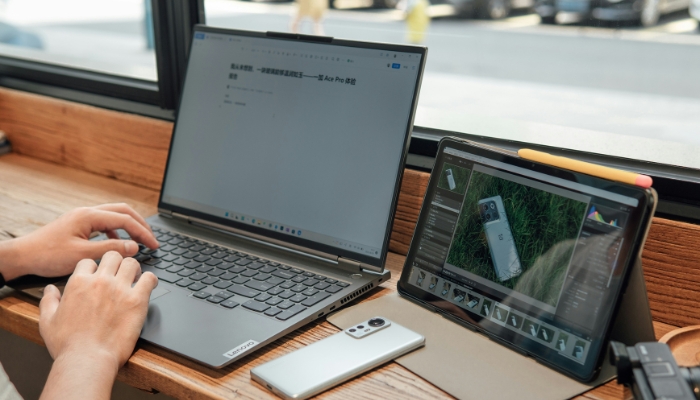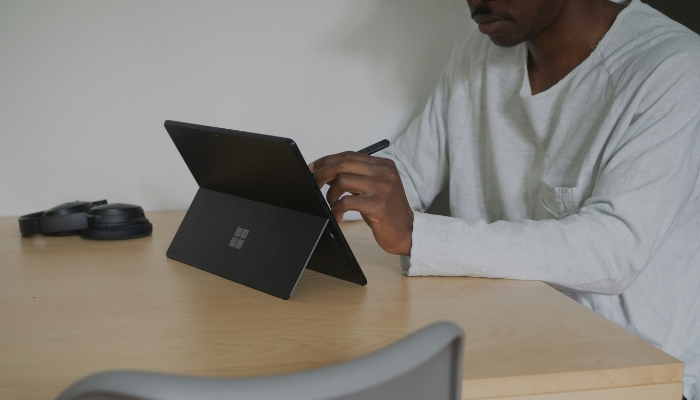
In an era of advancing technology and growing concerns about privacy, the question of whether can the government track your phone becomes increasingly pertinent.
Yes, the government can track your phone. Government agencies use advanced surveillance technologies to access cell phone location data and cell towers information. This tracking, often for security or investigation, usually requires a search warrant but can raise concerns about digital privacy and unreasonable searches.
While there is a common belief that such tracking is possible, it is essential to dissect this complex issue, understand the legality surrounding it, and learn about protective measures for securing our mobile phones. After all, in a digital world, knowledge is power and safety.
The Rise of Surveillance Technology
As technology has advanced rapidly in the past few decades, so too has the rise of surveillance technology, transforming the way governments monitor and track individual activities. This transformation is primarily driven by the proliferation of surveillance technologies, many of which are now integral parts of our daily lives. These technologies have given government agencies an unprecedented capability to invade digital privacy.
The development of invasive surveillance programs has been facilitated by powerful surveillance authorities. These authorities have the ability to intercept and analyze vast amounts of data, often without the knowledge or consent of the individuals being surveilled. This has raised significant concerns about the erosion of digital privacy and civil liberties.
While these surveillance technologies can be used to safeguard national security and maintain public order, their proliferation has led to a dramatic increase in the power and reach of government agencies. The balance between security and privacy is a complex issue that requires careful deliberation. As surveillance technologies evolve and cases of fake government calls increase, so too must our understanding of their implications and our strategies for ensuring digital privacy.
Understanding Mobile Phone Tracking
In the realm of digital surveillance, the tracking of mobile phones emerges as a critical area of focus, warranting our attention due to its widespread use and potential for privacy invasion. Location tracking of mobile devices is a central aspect of this, involving the collection and processing of cell phone location data.
To understand this better, consider the following:
- Cell service providers continuously monitor and store location data, pinpointing where their users are at any given moment.
- This data is not just limited to geographical coordinates; it also includes timestamps and other crucial details which can be used to map out a person’s daily routine.
- A government request can compel these service providers to share this data, enabling authorities to track individuals.
- The accuracy of location tracking can vary, often depending on the technology used and cell service coverage.
Awareness of these processes is crucial. While this tracking has potential benefits, such as locating lost devices or individuals, it also raises significant privacy concerns. Understanding the mechanisms behind mobile phone tracking is the first step in navigating this complex digital landscape.
Legal Framework for Government Surveillance

Moving forward, we must examine the legal framework that governs such surveillance activities by the government. Law enforcement agencies, under the federal government, are authorized to track phones but under specific circumstances and with certain restrictions. This is heavily regulated by the U.S. legal system, with a central component being the need for a search warrant.
Obtaining a search warrant involves convincing a judge that there is probable cause to believe that tracking the phone will provide evidence of a crime. This is a fundamental part of the protection provided to citizens under the Fourth Amendment of the U.S. Constitution.
The Supreme Court has further clarified these laws through several landmark rulings. For instance, in the case of Carpenter v. United States, the Court held that law enforcement must obtain a search warrant to access historical cell phone location data.
Government documents also play a role in shaping the legal framework. Various statutes, regulations, and policy directives guide how and when the government can track phones. Thus, while the government does have surveillance capabilities, their use is bound by an intricate legal framework designed to protect citizens’ rights.
Instances of Governmental Phone Tracking
While the legal boundaries are clearly defined, there have been several notable instances where government agencies have tracked phone activities. These instances have often involved cell site location information falling into the hands of law enforcement, sometimes bypassing the warrant requirement.
To illustrate, here are four instances of governmental phone tracking:
- NSA Bulk Collection: The National Security Agency (NSA) ran a mass surveillance program that collected Americans’ phone records in bulk. This program came to light through Edward Snowden’s disclosures in 2013.
- Project Hemisphere: AT&T provided cell site location information to law enforcement, effectively tracking individuals without a warrant.
- Stingray Devices: Government officials have used these devices to mimic cell towers and collect data from phones in a given area. They can track individuals’ locations without their knowledge.
- Carpenter v. United States: In this landmark case, law enforcement tracked a suspect’s location through cell site location information without a warrant, prompting a Supreme Court decision on the legality of such actions.
These examples illustrate how government surveillance has, at times, moved beyond legal boundaries, challenging our understanding of privacy in the digital age.
Protection Against Unlawful Tracking

Despite these intrusions, there exist several effective methods to safeguard oneself against unlawful government tracking. The first step to protection against unlawful tracking is understanding your rights. The Fourth Amendment of the U.S. Constitution protects citizens against unreasonable searches, including unauthorized tracking by the government.
Next, employing cutting-edge privacy technology can significantly enhance individual privacy. Many modern devices offer privacy mode settings, which limit the amount of data that can be collected. Encrypted messaging apps and Virtual Private Networks (VPNs) can also make it harder for your movements and communications to be tracked.
Enhancing Your Mobile Phone Security
To enhance your mobile phone security and further safeguard against potential tracking, it’s essential to implement several protective measures. These steps not only ensure a robust defense against potential tracking but also provide peace of mind to cell phone users.
- Update Regularly: Always update your mobile phone and mobile apps to the latest versions. These updates often include security enhancements and patches.
- Location Services: Limit the use of location services. Many apps unnecessarily request this information, which can be used to track your movements.
- App Permissions: Be cautious about the permissions you grant to mobile apps. Not every app needs access to your camera, microphone, contacts, etc.
- Secure Wi-Fi and Bluetooth: Only connect to secure and trusted Wi-Fi networks. Also, keep your Bluetooth off when not in use to prevent unauthorized connections.
Consequences of Governmental Tracking

Having explored ways to bolster mobile phone security, it’s now imperative to understand the potential consequences that arise from governmental tracking. Government clients often obtain cell phone location information for national security purposes or criminal investigations. However, this access to location data is a double-edged sword, and there are several notable consequences of governmental tracking.
Primarily, there is the significant loss of privacy. With the government having access to the minutiae of your daily movements, the private sphere of an individual is significantly encroached upon. This invasion of privacy can lead to anxiety and a chilling effect on free speech and association.
Furthermore, governmental tracking can potentially be misused for political or personal gains. Authorities can use cell phone location information to monitor political rivals, activists, or dissidents, thereby threatening democratic processes.
Additionally, there’s also the risk of data breaches. If the government can access this data, so can hackers. This could put personal data into the hands of those with malicious intent.
The Future of Phone Surveillance
As we look ahead, the future of phone surveillance presents a landscape teeming with technological advancements and potential challenges. Our cell phones have evolved into powerful tracking devices that can reveal our every move to federal agencies.
This future surveillance landscape may include:
- Increased use of cell towers: Cell towers can help in locating a cell phone, even when not in use. More towers could mean more precise location tracking.
- Expansion of federal agencies’ powers: There could be more legal allowances for agencies to access private phone data, raising questions about privacy rights.
- Rise of location data brokers: These entities collect and sell location data from various sources, including cell phones. Their role could grow, further intensifying surveillance.
- Advancements in tracking technology: As technology advances, the ability to track our movements and predict our behaviors may become frighteningly accurate.
To conclude, the future of phone surveillance is a complex and challenging landscape. It is a mixture of potential advancements that could help law enforcement agencies and potential threats to our privacy rights. The balance between these two sides will be a critical aspect to watch as we move forward.
Conclusion
Surveillance technology, particularly mobile phone tracking, has increasingly become a tool for government oversight. While legal frameworks exist to regulate surveillance, instances of unwarranted tracking persist. As such, individuals must adopt measures to enhance mobile security.
The implications of governmental tracking are profound, underscoring the need for more robust legal protections. The future of phone surveillance remains uncertain, but the necessity for privacy safeguards is clear.
FAQs: Can the Government Track Your Phone
Can government agencies track my mobile phone?
Yes, government agencies have the capability to track mobile phones. They use various methods like cell phone location data, cell site location information, and location tracking technologies. This is often done for security purposes or during investigations by law enforcement agencies.
How do federal agencies use cell phone location data?
Federal agencies, such as the FBI or Immigration and Customs Enforcement, utilize cell phone location data to monitor the physical location of individuals. You can obtain this data through cell towers, GPS tracking, or by accessing location data from cell phone carriers. However, typically, a search warrant is required to ensure adherence to legal standards set by the Supreme Court.
Are my conversations safe from mass surveillance?
While mobile devices and cell phones offer various privacy modes and security settings, there’s always a risk of mass surveillance. Intelligence agencies and government officials might access conversations, especially if they involve sensitive locations or matters of national security. Using privacy browsers or a reputable VPN provider can enhance your digital privacy.
Do private companies have access to my cell phone location information?
Yes, private companies, especially tech giants and mobile apps developers, often collect cell phone location information. This data is sometimes shared with third-party apps, weather apps, or sold to location data brokers. Users should regularly perform a 30-second privacy check on their devices and manage location services settings to protect their individual privacy.